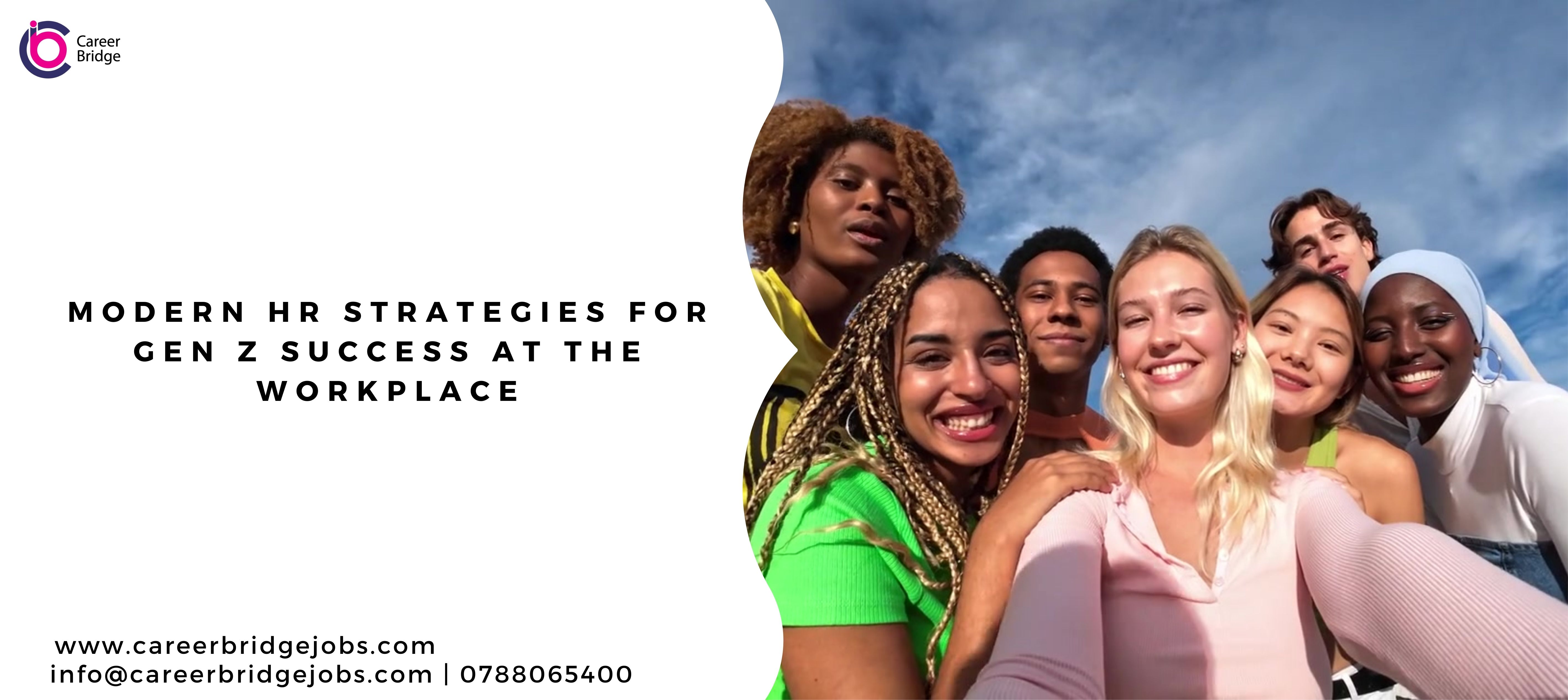
|
Just like the current generation, the field of Human Resources is ever-changing. |
|
Recently, the integration of Generation Z individuals into the workplace has presented both challenges and opportunities for HR professionals and organizations. Born between the mid-1990s and early 2010s, Gen Z brings a unique set of skills, preferences, and expectations that require innovative HR strategies to foster success in the workplace. To meet the needs of this digitally native generation and drive organizational growth, HR professionals must adapt and implement modern HR strategies tailored to Gen Z employees. Let’s delve into some of the strategies that will foster the success of Gen Z in the workplace:
Gen Z values flexibility in their work schedules, seeking autonomy and work-life balance. Flexible work arrangements, such as flex-time, compressed work weeks, part-time schedules, and remote work options, empower Gen Z employees to manage their time effectively and align work with personal commitments. By offering flexibility in when and where work is performed, organizations can enhance employee satisfaction, productivity, and retention among Gen Z talent.
In addition to competitive salaries, Gen Z employees prioritize comprehensive compensation packages that include benefits and incentives beyond basic pay. Health insurance, transportation allowances, paid time off, bonuses, and stock options are among the benefits and incentives that appeal to Gen Z professionals. By providing attractive compensation packages, organizations can attract and retain top Gen Z talent, driving organizational success and growth.
Gen Z employees are inherently curious and value opportunities for continuous learning and skill development. Organizations can attract and retain Gen Z talent by offering robust learning and development programs that allow employees to expand their knowledge, acquire new skills, and advance their careers. Incorporating e-learning platforms, mentorship programs, and on-the-job training opportunities can cater to the learning preferences of Gen Z professionals, fostering a culture of continuous growth and development within the organization.
Gen Z, being digital natives, gravitates towards technology-driven solutions in the workplace. HR professionals can leverage technology to streamline HR practices and enhance the employee experience. Artificial Intelligence (AI) tools facilitate tasks such as performance management, recruitment, and onboarding, improving efficiency and accuracy in HR processes. Blockchain technology ensures secure and transparent management of HR functions, including recruitment, employee engagement, and compensation. Chatbots enhance communication and engagement, providing support throughout the employment process and fostering a positive employee experience. Benefits of Modern HR Strategies for Gen Z
Challenges and Considerations While modern HR strategies offer numerous benefits for Gen Z success in the workplace, organizations may encounter challenges in implementation. These include:
In conclusion, embracing modern HR strategies is essential for the success of Gen Z in the workplace. By prioritizing flexibility, technology, and comprehensive compensation packages, organizations can attract, retain, and empower Gen Z talent, driving organizational growth and innovation. HR professionals play a pivotal role in spearheading the adoption of modern HR practices and positioning their organizations for success in the digital age. We invite you to join our vibrant social media platforms and WhatsApp community for free career development guides, tips and the latest job alerts and opportunities. CLICK TO JOIN OUR LINKEDIN COMMUNITY |